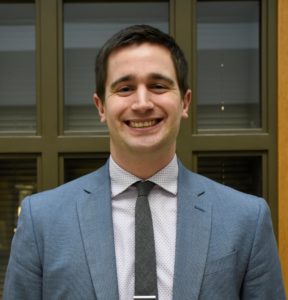The U.S. House of Representatives and Senate this week passed amended versions of the FUTURE Act, which simplifies the FAFSA process for student financial aid. It also permanently reauthorizes funding for Historically Black Colleges and Universities (HBCUs) and Minority Serving Institutions (MSIs). For low-income students, federal policy can make or break their pursuit of higher education. I invited Dr. Jeremy Raff, our coordinator of college & career services, to update us on the possibilities for reform.

Three out of every four McCaskey students say they want to pursue some kind of higher education after they graduate from high school. But only 42 percent ultimately attend. It’s our job to help students overcome the barriers that are in the way of student’s goals. Congress can help, too.
While there are many potential pathways to economic success, higher education remains the strongest. Our students understand this. For some, postsecondary plans change as they near graduation. For many, however, the process of applying for college is complicated and confusing, and the cost is far above what they can afford. This is unfortunate—but it may be changing.
Congress is currently debating reauthorization of the Higher Education Act. Last reauthorized in 2008, this legislation guides the federal investments in postsecondary education. Lawmakers are moving slowly, but we are encouraged by some of the bipartisan momentum to control costs of higher education and help students finance their degrees.
Federal Pell grants are in need of a significant boost. These grants are typically the primary source of aid for low-income students, but they currently cover less than 30 percent of the average tuition at public colleges. The gap is widening as states reduce their subsidies for public colleges. According to a recent report by the National College Access Network, only 5 percent of Pennsylvania public colleges are affordable, defined as having a total price less than or equal to the sum of the institution’s average grants, loans, work study, family contributions and summer wages. Many SDoL graduates struggle to find funding to finish their studies, and the lessening share of federal and state aid makes this even more difficult.
The financial aid process remains overly complicated. Bipartisan support exists to streamline the Free Application for Federal Student Aid (FAFSA). Reducing this burden will enable students to more easily access aid and reduce the amount of time they spend on cumbersome financial paperwork (not to mention the time SDoL staff spends assisting students).
But that’s not all. Once students navigate financial aid applications, their financial aid offer letters from colleges remain confusing and at times misleading. Lancaster Rep. Lloyd Smucker recently cosponsored bipartisan legislation to require all colleges and universities to provide information in a consistent manner.
I am hopeful that these commonsense solutions are part of a reauthorized Higher Education Act. The School District of Lancaster invests heavily in college and career readiness, because we believe it is critical to help students find success in their next steps after high school. High school counselors, our College and Career Center, Future Ready Lancaster, dual enrollment, school day SAT tests, AP and IB programs, and Career and Technical Education—all support students in pursuing their postsecondary dreams.
Let’s call on Congress to help make these dreams reality.
